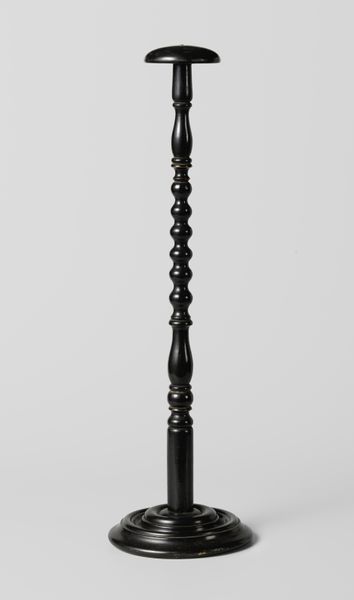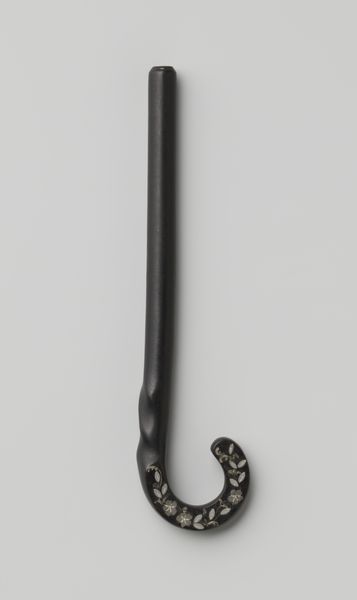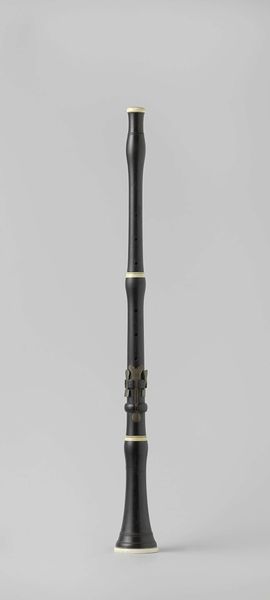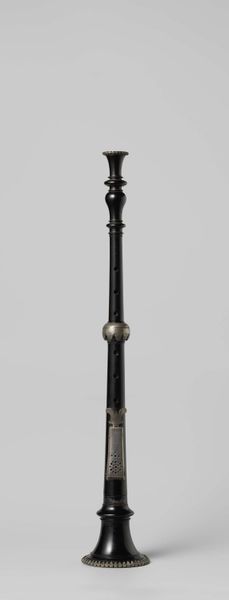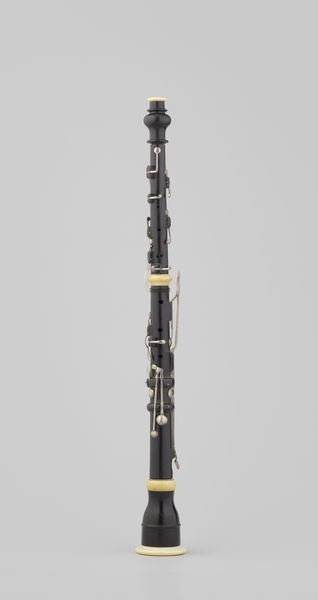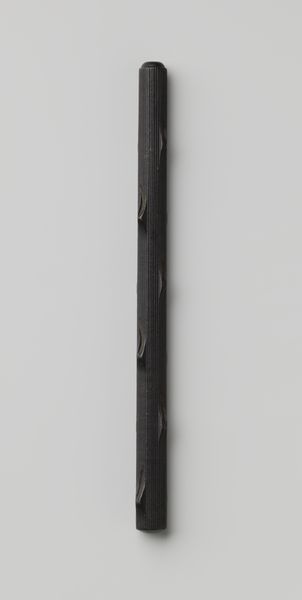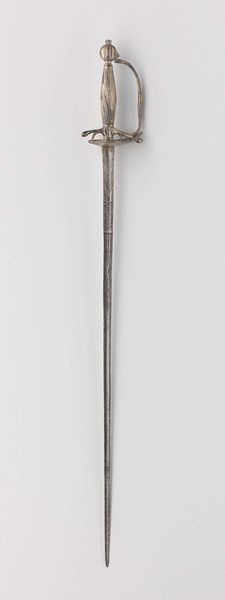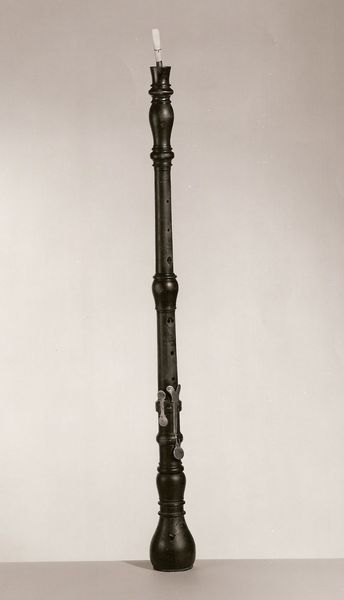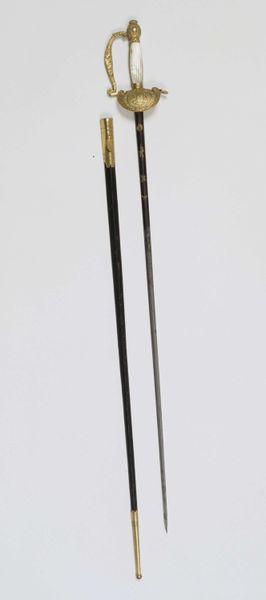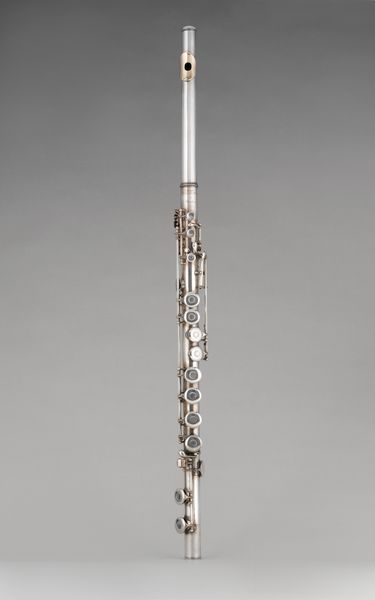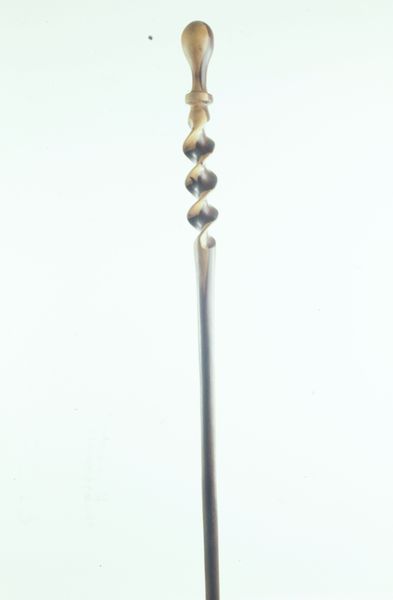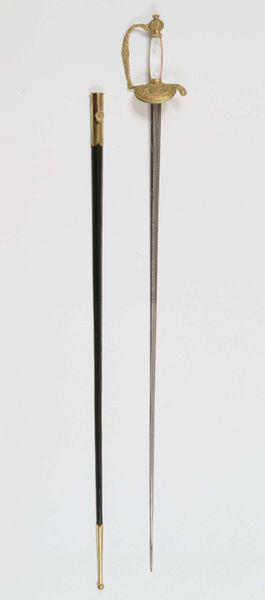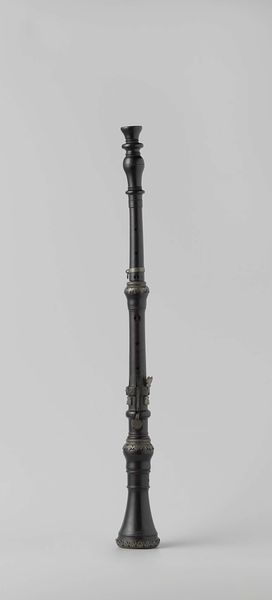
Standaard van het hoofdstel van het paard Alice dat op 12 augustus 1831 door de prins van Oranje werd bereden Possibly 1831 - 1838
0:00
0:00
anonymous
Rijksmuseum
carving, sculpture, wood
#
clear graphic shape
#
3d sculpting
#
3d model
#
carving
#
3d image
#
3d printed part
#
plastic material rendering
#
virtual 3d design
#
form
#
3d shape
#
geometric
#
sculpture
#
3d digital graphic
#
metallic object render
#
line
#
wood
#
decorative-art
Dimensions: height 56 cm, height 48 cm, diameter 13.8 cm
Copyright: Rijks Museum: Open Domain
Editor: This object, at the Rijksmuseum, is identified as a standard for the bridle of the horse Alice, ridden by the Prince of Orange on August 12, 1831. Carved probably sometime between 1831 and 1838, it’s an elegantly turned wooden sculpture. It's fascinating how something so seemingly simple could carry so much symbolic weight. What can you tell me about the broader historical context? Curator: Indeed. While aesthetically simple, its historical significance lies in what it represents: royal power and its legitimization in a time of upheaval. The Prince of Orange, later King William II, and the horse, Alice, were potent symbols after the Belgian Revolution. To what extent was this bridle standard used and displayed, contributing to that construction of royal imagery? Editor: That’s a really interesting point. It seems less about functional horsemanship and more about staged symbolism. Was this sort of display common at the time? Curator: Absolutely. Equestrian portraits and displays were strategically used to convey strength, authority, and connection to military prowess. Think about how portraits often served to reinforce a ruler’s power; in what ways might an object like this have participated in a similar, albeit less overt, function? Editor: So, almost like a prop in a performance of power. I hadn't considered the object’s role in constructing a public image. Curator: Precisely. Museums shape this memory and give space to analyze such objects beyond their mere function and origin. Considering this, what new ideas have emerged about how a simple stand gains importance being the support for the harness of Alice the war horse? Editor: I will now see these simple looking artworks through another lens, with much more interest in social contexts. Thanks so much! Curator: My pleasure! These kinds of stories exist for almost every museum object, waiting to be unravelled.
Comments
No comments
Be the first to comment and join the conversation on the ultimate creative platform.
